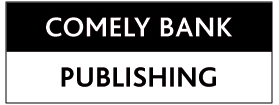Knowing the genre of your book is very important - and the emerging trend of more nuanced and sub-genres means you can appeal to an established readership, according to a recent article by Spiffing Covers.
There are traditional genres which everyone knows such as romance, sci-fi, crime fiction, chick-lit and historical, but the more nuanced and emerging sub-genres can be crime-fantasy, quiet horror, eco-thriller, zombie romance, slipstream, low fantasy, hard sci-fi and many more.
According to the article, self-published authors should think about where their existing and future titles fit in with this list of searchable keywords, as there will be people out searching for such books by the genre.
The article continues: "There is a reason that particular genres emerge and exist and that is simply that similar books are popular enough, for long enough to require a common identifier allowing them to be searched and bought.
"The genres defined by buying trends make money for retailers on and offline, allowing readers to get to the content they want as quickly as possible. Then, authors begin to write in response to those genres.
"If you think of genre as something to consider after writing you book, you may be missing out on the benefit of working with established and emerging search trends and genre definitions in mind. Your titles will have a genre which is most closely linked to a particular type of reader, or potential super-fan, and it makes perfect sense to be aware of this and write directly to that super-fan. This does not mean changing your writing to fit a genre or stereotype, but might be seen as allowing your writing to work with buying trends rather than against them, pushing the boundaries of genre in new and exciting ways.
"The more effectively you can identify your genre (niche or otherwise) and who you are writing for, the more sales you will make by appealing to the wants of those readers."
Article thanks to Spiffing Covers.







